Laurence Fishburne, a towering figure in Hollywood, has built a legacy that transcends genres, time, and mediums. A chameleon-like actor, his career spans over four decades, featuring iconic roles in science fiction, drama, action, and even animation. Fishburne’s dedication to his craft, his ability to transform into every character he plays, and his commitment to storytelling have cemented him as a legend in the world of entertainment.
This article explores Fishburne’s unparalleled career and examines how his performances in films like The Matrix, Boyz n the Hood, and John Wick, as well as his work on television, have contributed to his lasting impact on both Hollywood and Black visual storytelling.
It’s impossible to discuss Laurence Fishburne without mentioning The Matrix trilogy. As Morpheus, the enigmatic mentor to Neo (Keanu Reeves), Fishburne created a character who was equal parts philosopher and warrior. Morpheus became a cultural icon, delivering lines like “What if I told you…” and the famous red pill/blue pill choice that would become shorthand for awakening to harsh truths.
Fishburne’s portrayal of Morpheus was groundbreaking, not just because of his commanding screen presence, but because it brought a Black actor to the forefront of one of cinema’s most revolutionary sci-fi franchises. His performance elevated the role to mythic status, inspiring generations of fans and affirming that Black actors could be central figures in futuristic, tech-driven narratives.

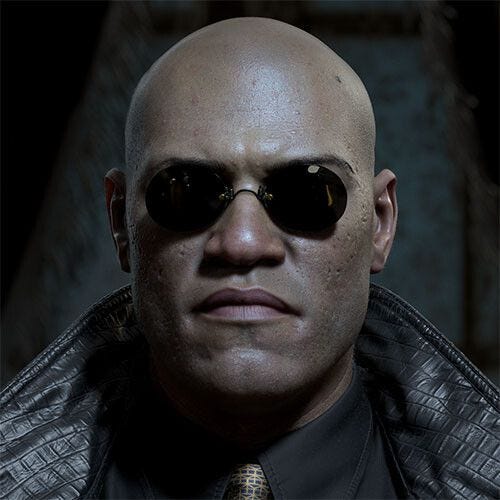
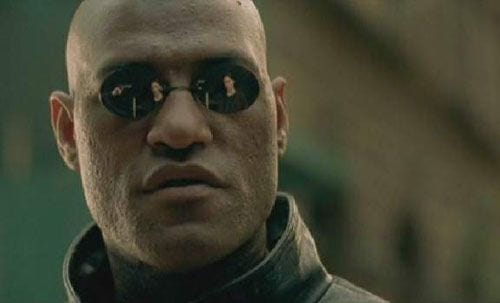

In 1991, Fishburne gave a quietly powerful performance as Furious Styles in John Singleton’s Boyz n the Hood. As a father trying to guide his son, Tre, through the perils of South Central Los Angeles, Fishburne’s portrayal was a masterclass in restraint and wisdom. Furious became a symbol of stability in a world of chaos, and Fishburne’s performance resonated deeply with audiences, establishing him as a formidable dramatic actor.

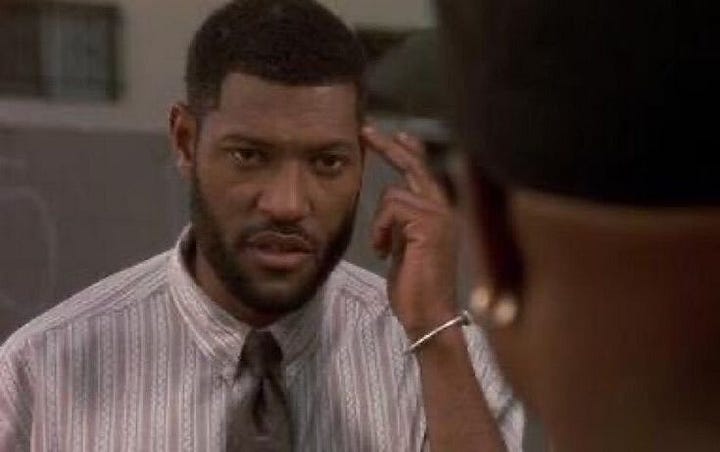
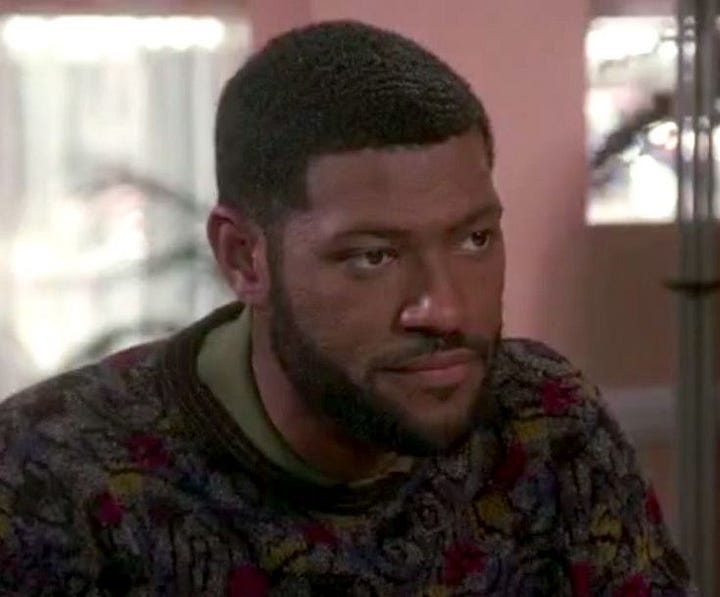

Fishburne’s Oscar-nominated role as Ike Turner in What’s Love Got to Do with It (1993) further showcased his range. Portraying the abusive yet talented musician, Fishburne walked a fine line between monstrous and charismatic, ensuring that Ike was as complex as he was terrifying. His chemistry with Angela Bassett, who played Tina Turner, remains one of the most electric partnerships in cinema history.
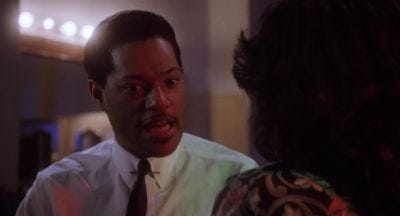
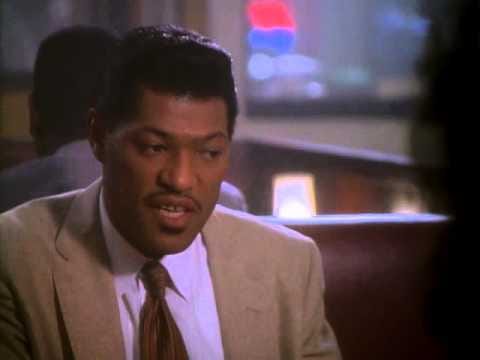
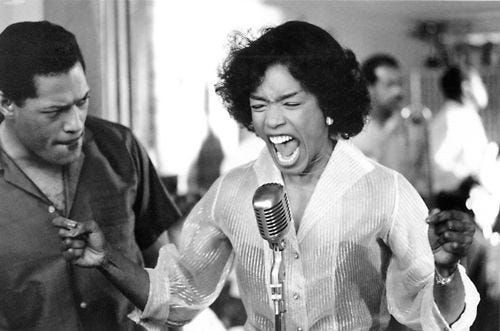
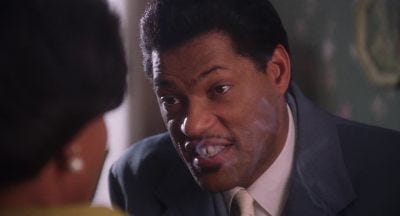
Fishburne’s range allowed him to shine in an eclectic mix of projects. In the sci-fi horror film Event Horizon (1997), he played Captain Miller, a stoic leader navigating a nightmarish spaceship. Meanwhile, his turn as a morally ambiguous detective in Deep Cover (1992) brought a noir edge to his repertoire, exploring the blurred lines between law and crime.
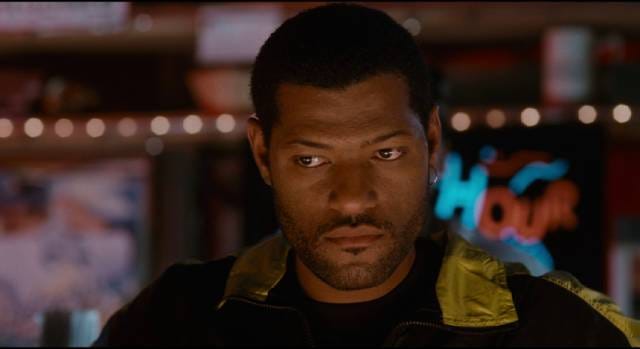
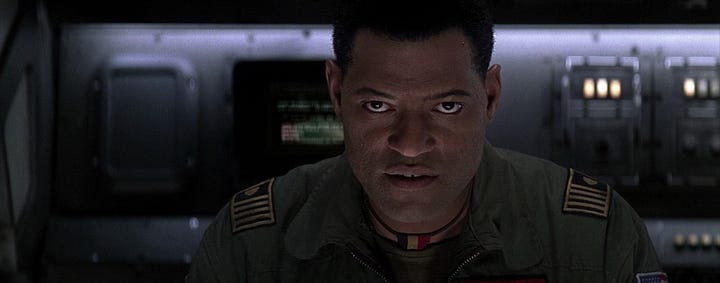
Even in unexpected genres, Fishburne excelled. He lent his voice to the quirky animated character Drix in Osmosis Jones (2001), bringing humor and gravitas to a story about the inner workings of the human body. In Ant-Man and the Wasp (2018), he portrayed Dr. Bill Foster, a brilliant scientist connected to Marvel’s superhero world. These roles highlighted Fishburne’s ability to seamlessly adapt to lighthearted, family-friendly content without losing his edge.
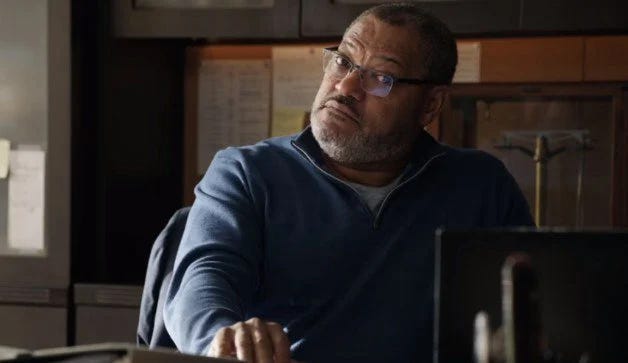
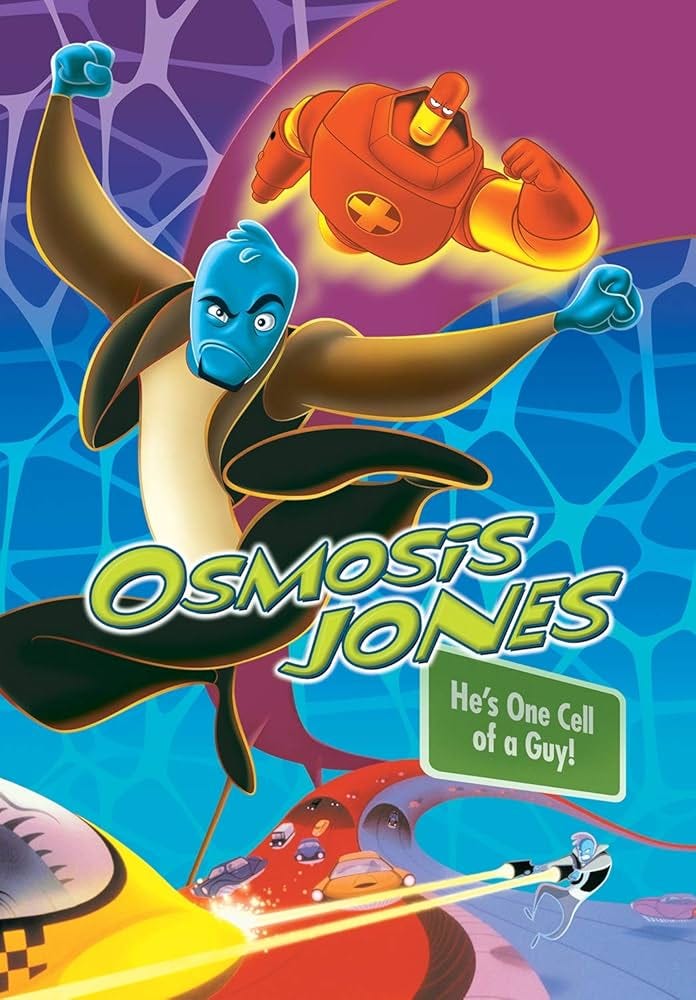
Fishburne’s commitment to telling Black stories has been a hallmark of his career. In Akeelah and the Bee (2006), he played Dr. Larabee, a strict yet compassionate mentor helping a young Black girl achieve her dream of winning a national spelling bee. The film was a heartwarming exploration of Black excellence and perseverance, with Fishburne anchoring the narrative with his warmth and intellect.
In Spike Lee’s School Daze (1988), Fishburne’s role as Dap Dunlap—a politically conscious college student—captured the complexities of identity and class within the Black community. Similarly, in Hoodlum (1997), he delivered a riveting performance as real-life gangster Ellsworth “Bumpy” Johnson, offering a nuanced portrayal of power and resilience during the Harlem Renaissance.


Fishburne continues to push boundaries, even as he approaches his 70s. In Slingshot (2024), a gripping sci-fi thriller, he plays a key role in a space expedition gone wrong. In Cellar Door (2024), he brings his dramatic weight to a haunting psychological drama that explores themes of family and redemption. These roles showcase his enduring relevance and his willingness to explore uncharted territory in filmmaking.
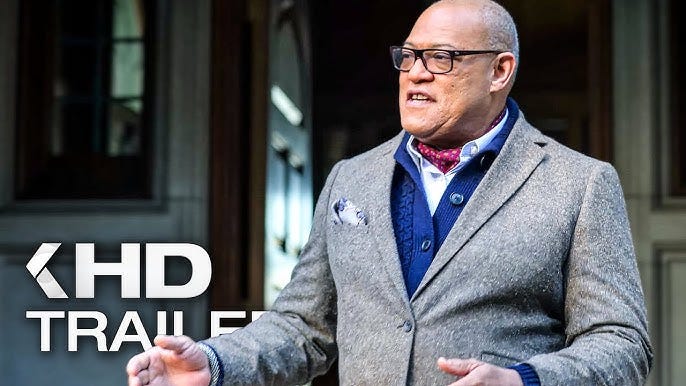
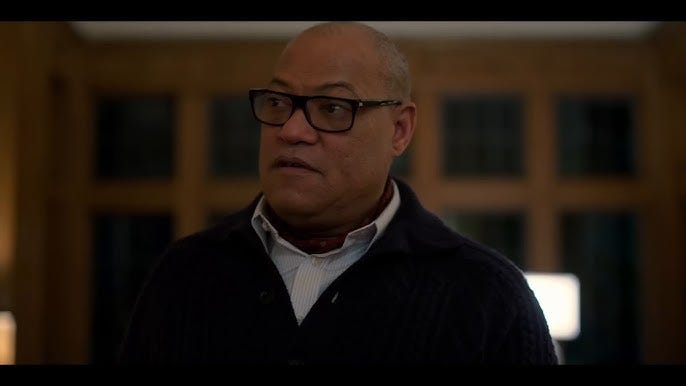

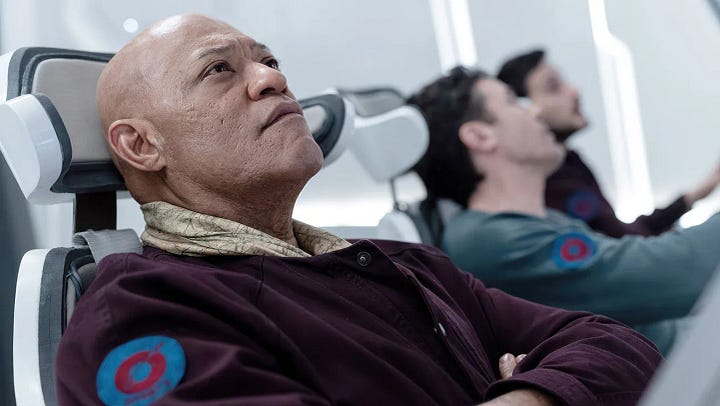
His turn in The Signal (2014), a cerebral sci-fi mystery, further exemplifies his knack for intriguing, offbeat roles. Fishburne’s character, Damon, exudes an unsettling calm, adding layers of suspense to an already mind-bending narrative.

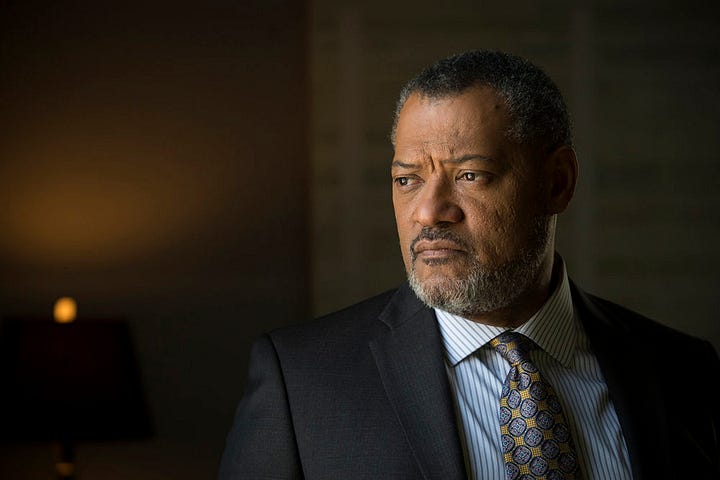
Fishburne’s television career is as illustrious as his film work. As Jack Crawford in Hannibal (2013–2015), Fishburne brought gravitas and depth to the role of the FBI’s Behavioral Sciences chief, navigating the twisted mind games of the titular cannibal. His commanding presence on the show was a testament to his ability to dominate the screen, even amid a star-studded cast.


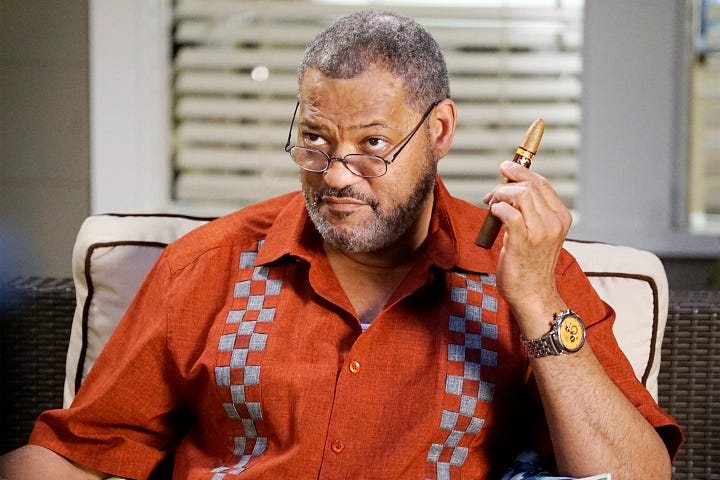

In black-ish (2014–2022), he showcased his comedic chops as Pops Johnson, the cantankerous yet lovable patriarch of the Johnson family. Fishburne’s humor and sharp delivery added a generational perspective to the show’s exploration of race, identity, and family dynamics.
Fishburne’s recent appearance as the narrator in The Witcher (2023) highlights his versatility, lending his authoritative voice to a fantasy epic, enriching its lore, and captivating audiences once again.
Beyond acting, Fishburne has used his talents to produce and narrate impactful projects. As the host of History’s Greatest Mysteries, he has brought historical events to life with his deep, resonant voice and intellectual curiosity.
Fishburne has also been an advocate for the arts, championing Black creatives and producing works that amplify underrepresented voices. His production of Miss Evers’ Boys (1997), a poignant HBO film about the Tuskegee syphilis experiment, earned widespread acclaim and highlighted his commitment to socially conscious storytelling.



Fishburne’s supporting role as The Bowery King in the John Wick series introduced audiences to a character who is equal parts cunning and regal. His partnership with Keanu Reeves reunited the Matrix co-stars in an entirely different context, creating a dynamic that fans have celebrated.

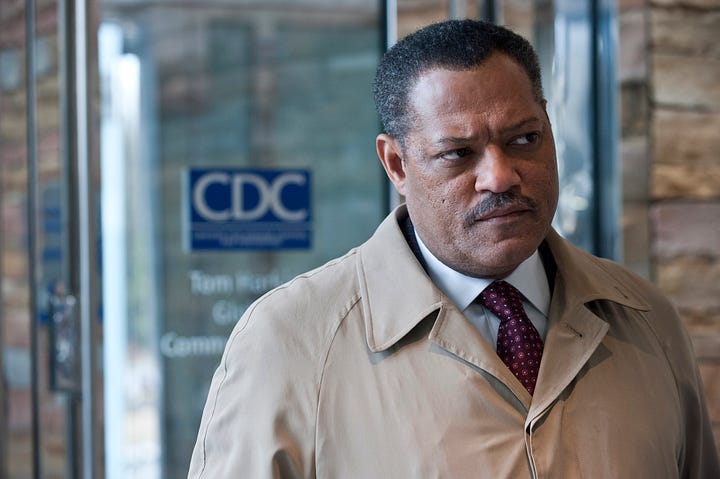
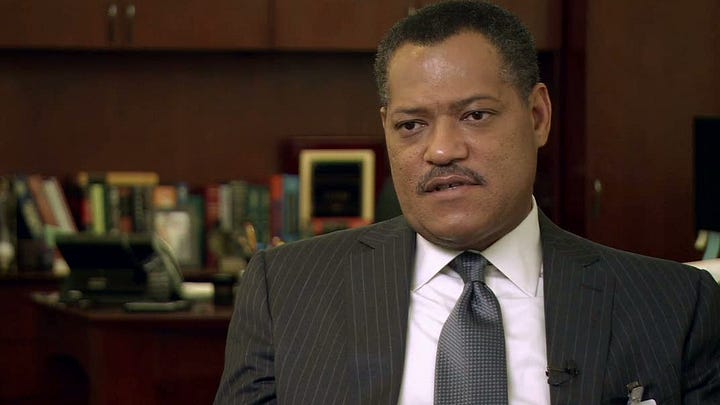

In Contagion (2011), Fishburne played Dr. Ellis Cheever, a CDC official trying to manage a global pandemic. The film’s eerie parallels to real-world events highlighted Fishburne’s ability to ground even the most outlandish scenarios in reality.
His turn as the voice of Silver Surfer in Fantastic Four: Rise of the Silver Surfer (2007) added yet another iconic franchise to his résumé, underscoring his stature as a versatile and reliable performer.
Fishburne’s dedication to his craft is matched only by his humility and generosity. In interviews, he often speaks about the importance of collaboration and the joy of watching younger actors shine. As a producer and mentor, he has contributed to projects that uplift Black narratives, ensuring his legacy will be as much about what he gives back as what he accomplishes.
Laurence Fishburne is more than an actor—he’s a cultural icon whose work has shaped the way we view cinema, television, and storytelling. From his breakout role as a teenager in Apocalypse Now (1979) to his most recent projects like Slingshot (2024) and Cellar Door (2024), Fishburne has demonstrated an unwavering commitment to excellence.
As he continues to take on new roles and support emerging talent, Fishburne’s legacy as one of the greatest actors of his generation is firmly secured. His work is a testament to the power of representation, the importance of storytelling, and the enduring impact of an artist dedicated to his craft. For fans and future actors alike, Laurence Fishburne remains a source of inspiration and a symbol of what’s possible when talent meets determination.
Laurence Fishburne’s career is a testament to the transformative power of storytelling and the importance of representation. His legacy, like those of countless Black actors and creators, has paved the way for a richer, more inclusive entertainment industry. But this work is far from over—supporting Black actors, voices, and creatives requires a collective effort from all of us.
At Realm Empire Industries, we’re dedicated to uplifting Black narratives and celebrating the voices shaping our culture and our future. Through initiatives like The Blkuem, we strive to create a space where Black creativity thrives, stories are celebrated, and legacies like Fishburne’s are honored for generations to come.
Join us in this mission. Support Black-led projects, advocate for representation, and share the work of Black creatives in your community. Together, we can ensure that the voices of today and tomorrow are given the platforms they deserve to continue inspiring the world.
Let’s honor the legacy and power of Black storytelling—because when we amplify Black voices, we shape a better, brighter future for everyone.
Actor on Sight: Angela Bassett – A Trailblazer in Hollywood and Beyond
Angela Bassett is a name synonymous with brilliance, depth, and cultural impact. From her commanding screen presence to her trailblazing roles, Bassett has solidified her position as one of the most legendary figures in Hollywood. Her work transcends acting; it is a celebration of resilience, artistry, and representation f…










Legend!
Literally was just talking about him